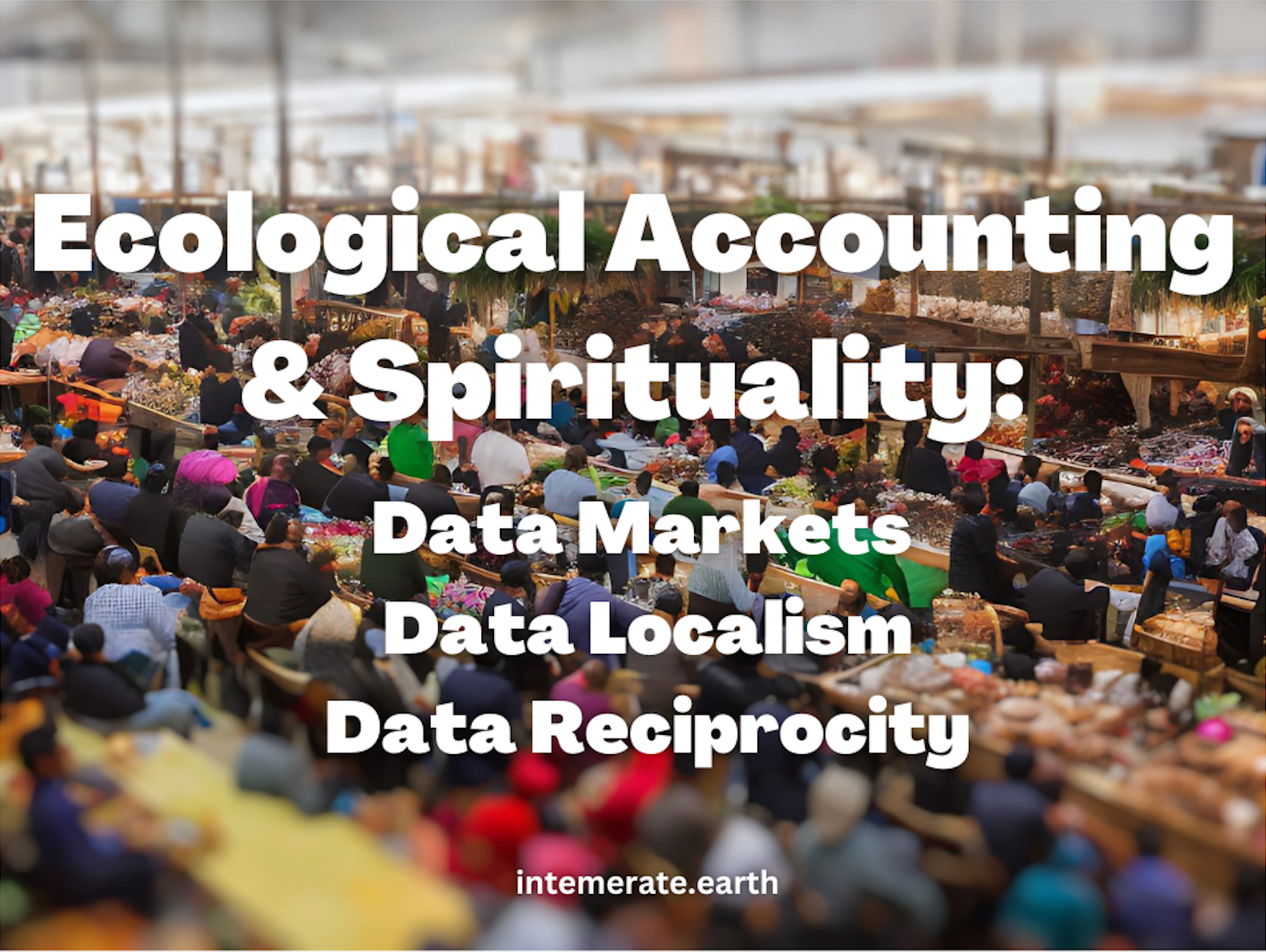
Our relationship with the natural world has been a topic of discussion and contemplation for thousands of years. In recent times, the urgency of addressing the ecological crisis has brought the need for a more integrated approach to the forefront. Exploring the intersection between economics and spirituality argues that incorporating spiritual values into economic decision-making can lead to a more sustainable and equitable world.
Data Reciprocity and Data Localism address the urgent issues of data sovereignty, privacy, and equity in the digital age. It recognizes the need for a radical transformation of our economic and social systems in order to achieve these goals.
The ecological crisis is one of the most pressing challenges facing humanity today. Climate change, habitat destruction, and the loss of biodiversity are just a few of the many problems that threaten the survival of countless species and the well-being of the planet. The root cause of these problems is often traced back to a human-centered worldview that sees the natural world as a resource to be exploited for human benefit.
Economics, as a discipline, is primarily concerned with the allocation of scarce resources to meet unlimited human wants and needs. However, the current economic system often prioritizes profit over other values such as social and environmental well-being. This has led to a number of negative consequences, including income inequality, environmental degradation, and the depletion of natural resources.
Spirituality, on the other hand, offers a different perspective on the relationship between humans and the natural world. Many spiritual traditions view the natural world as sacred and see humans as part of a larger, interconnected whole. This worldview emphasizes the interdependence of all living beings and the importance of living in harmony with the natural world.
The integration of ecology, economics, and spirituality offers a path toward sustainability by incorporating both scientific and spiritual perspectives on the relationship between humans and the natural world.
One of the key benefits of this intersection is the creation of a more equitable and sustainable economic system. Data measuring our well-being, for example, can be a tool addressing our spiritual values such as compassion and cooperation, and result in economic decision-making guided by a deeper sense of purpose and responsibility. This can lead to a more equitable distribution of resources and a greater emphasis on environmental protection and sustainability.
Throughout history, the spiritual exchange of goods and markets has played a significant role in many cultures and civilizations. In ancient times, bartering was a common practice, where goods and services were exchanged without the use of currency. This exchange was often guided by spiritual beliefs and values, such as the belief in the interdependence of all living beings and the importance of mutual support.
In some indigenous cultures, the concept of the “gift economy” was central to the exchange of goods and services. In these societies, resources were shared freely and individuals were encouraged to give generously to those in need. This was seen as a way of building community and strengthening social bonds and was often guided by spiritual beliefs about the interconnectedness of all living beings.
Religious markets, such as the Suq in the Islamic world, have also played a significant role in the exchange of goods and services. These markets were often a hub of economic activity and served as a place for merchants and traders to exchange goods and services. They were also a place for religious and cultural exchange, where individuals from different backgrounds could come together to exchange ideas and goods.
The concept of “fair trade” and provenance in supply chains has emerged as a way of incorporating more holistic values into an economic exchange. Fair trade is based on the idea of creating a more equitable and sustainable economic system by ensuring that workers and producers in developing countries receive a fair price for their goods and services.
Data Reciprocity and Data Localism
Data Reciprocity and Data Localism recognize that data is a valuable resource that has the potential to empower communities and individuals, but that this potential is often exploited by large corporations and governments. Therefore, any solution to these global challenges must prioritize the rights and needs of people over the profits of a few.
A 21st-century economy integrates the intrinsic value of data and its role in shaping our lives. We must acknowledge the rights of individuals and communities to control and benefit from the data that they produce and shift from a paradigm of surveillance and exploitation to one of transparency and reciprocity.
• Prioritize data localism. We must empower local communities to take control of their own data, and promote decentralized systems that allow for greater autonomy and self-determination. This includes advocating for open-source software, community-owned data centers, and community-led data governance structures.
• Foster a culture of data reciprocity. We must recognize the importance of mutual exchange and collaboration, and promote systems that allow for fair and equitable sharing of data. This includes advocating for data cooperatives, data commons, and open data initiatives that benefit all members of a community.
• Prioritize data privacy and security. Individuals and communities have the right to control how their data is collected, used, and shared and that this data is protected from unauthorized access and misuse.
• Prioritize education and awareness. All people have access to accurate information about their data and are empowered to make informed decisions about their impact on the digital landscape.
• Recognize and honor the interconnectedness of data and our lives. Break down the false dichotomies of data versus privacy, and individual versus community, and realize that we are all part of a larger, interdependent web of data.
• Recognize and honor the potential for data to create positive social change. Promote data justice and equity and ensure that data is used to facilitate social and environmental sustainability, rather than perpetuating systemic injustices.
Data Reciprocity and Data Localism recognize the urgency of the global crises we face in the digital age.
An integrative approach to ecological economics and spirituality is the creation of a more holistic understanding of our interactions with ecological biodiversity. Translocal markets recognize the importance of protecting the natural world not just for its own sake, but for the well-being of all living beings and for future generations.
The intersection between economics and spirituality offers a path toward a more sustainable and equitable world. By incorporating spiritual values into economic decision-making, we can create a more holistic and compassionate economic system that prioritizes the well-being of all living beings and the planet as a whole.
